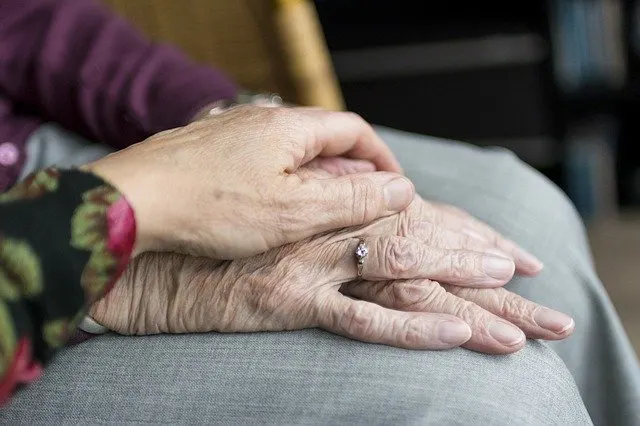
It is never easy when someone you love is diagnosed with cancer. The news can be overwhelming, stressful, and traumatic. You may find yourself experiencing a range of emotions, from sadness and fear to anger and resentment. However, as difficult as it may be, it is essential to remember that your loved one needs your support and guidance now more than ever.
Supporting loved ones with cancer involves more than just providing them with emotional support. It also involves practical considerations and responsibilities. You might need physical assistance, arrange appointments, and help with various tasks.
The impact of cancer on loved ones can be immense, and the emotional challenges can be overwhelming. This is why it is essential to understand what your loved one is going through and how you can best support them.
Emotional guidance can help them deal with cancer’s emotional and psychological impact, such as anxiety, fear, and depression. You can help your loved ones feel supported and empowered throughout their journey by providing practical tips and emotional guidance.
The Impact Of Cancer On Loved Ones
Cancer can have a significant impact on loved ones. It can cause anxiety, depression, and stress. It can also disrupt daily routines and responsibilities.
Understanding that each person’s cancer experience is unique is critical, and you should consider their needs and circumstances. Being compassionate and empathetic can help your loved one feel heard, validated, and supported.
Emotional Challenges
Loved ones of cancer patients can face a range of emotional challenges. These may include feelings of helplessness, anger, guilt, and anxiety. They may also feel disconnected from their own lives and experiences.
It is vital to acknowledge and validate their emotions and offer non-judgmental support. You should also encourage them to seek professional help if necessary.
Practical Tips For Supporting Loved Ones
Several practical tips can help you support your loved one with cancer. Here are some:
Communication Strategies And Active Listening
Communication is critical when supporting loved ones with cancer. You should communicate clearly and directly and avoid assumptions about their needs and preferences.
It is also important to actively listen to your loved one’s concerns and feelings without judgment or criticism. Promoting them to express their emotions and feelings and validating their experiences would be best.
Providing Physical Assistance And Support
Physical assistance and support can also be necessary for loved ones with cancer. You may need to help with transportation, meal preparation, and other day-to-day tasks. You should also help your loved one maintain a sense of normalcy and routine by engaging in activities they enjoy.
Finally, encourage them to engage in self-care activities like exercise, meditation, and relaxation.
Organizing And Coordinating Appointments And Treatments
Cancer treatment often involves frequent appointments and procedures, making it difficult for patients to keep everything organized. As a caregiver, one way to support your loved one is to help them manage their appointments and treatments.
This can involve keeping track of scheduled appointments, helping them arrange transportation, and taking notes during appointments.
Managing Medication And Healthcare Needs
Managing medications and healthcare needs is another crucial aspect of caring for someone with cancer. Ensure they take their medications as prescribed and have access to the necessary medical care. You can also help them research and find healthcare providers that fit their needs and preferences.
Assisting With Daily Tasks And Household Chores
Cancer treatments and symptoms such as fatigue often make it difficult for patients to complete daily tasks and household chores. As a caregiver, you can help alleviate some of their stress by assisting with these tasks. Offer to cook, clean, or run errands.
These small gestures can be incredibly helpful and give them more time and energy to focus on their treatment and recovery.
Resources And Support Networks
Being a caregiver can be emotionally draining, and it’s important to remember that you don’t have to go through this alone. Many resources and support networks are available to help you and your loved one cope during this difficult time.
Cancer Support Groups And Organizations
Cancer support groups can provide caregivers and patients with emotional support, resources, and guidance. These groups can provide a safe space to share experiences, advice, and encouragement.
Online Communities And Forums
Online communities and forums can be another valuable resource for caregivers. Look for online forums and communities specific to your loved one’s type of cancer. These can provide a wealth of information, support, and advice.
Local Resources For Practical Assistance
Many communities offer local resources for practical support, such as meal delivery programs, transportation services, and home health aides. Contact local organizations or government agencies to find out what resources are available in your area.
Hospice And Palliative Care Organization
Hospice and palliative care organizations can provide specialized care for those nearing the end of their life. These organizations can offer support for patients and caregivers, such as pain management, emotional counseling, and a team of medical professionals to manage care.
Supporting loved ones with cancer can be challenging, but it is also one of the most meaningful and rewarding things you can do. By providing practical tips and emotional guidance, you can help them feel supported and empowered throughout their journey.
Communicating openly, validating their experiences, and offering non-judgmental support is essential. By doing so, you can help your loved one navigate this difficult time with strength and courage.
- Sagittarius Man & Gemini Woman Love and Sex Compatibility - January 31, 2024
- Taurus Ascendant Rising Personality Traits in Men (Guide) - January 31, 2024
- How to Seduce and Attract a Sagittarius Man (Seduction Tips) - January 31, 2024
